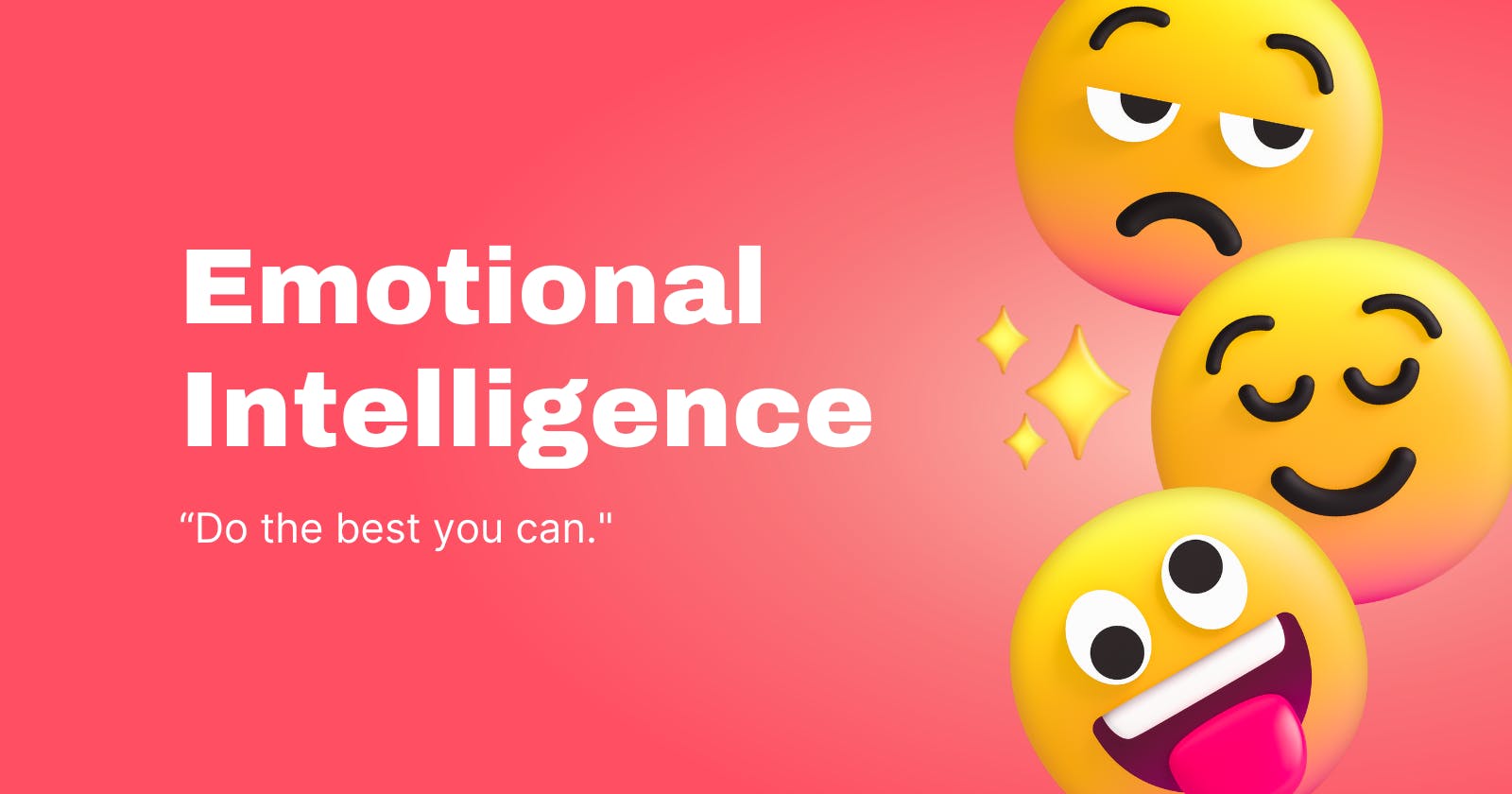Emotional Intelligence
“Experience is not what happens to you — it's how you interpret what happens to you.”
Emotional intelligence (EI) is the ability to recognize and manage one's own emotions, as well as understand and influence the emotions of others. In today's society, having high emotional intelligence has become increasingly important, as it can lead to improved relationships, greater success in the workplace, and overall better mental health. In this article, we will explore what emotional intelligence is, its benefits, and some tips to develop and improve it.
What is Emotional Intelligence?
Emotional intelligence is a set of skills that enables us to understand and manage our emotions and those of others. It involves being aware of our own emotions, recognizing and understanding other people's emotions, and effectively using this information to communicate and navigate social situations.
There are five components of emotional intelligence:
Self-awareness: the ability to recognize and understand our own emotions.
Self-regulation: the ability to control and manage our emotions, thoughts, and behaviors.
Motivation: the ability to use our emotions to drive and direct our behavior towards achieving our goals.
Empathy: the ability to recognize and understand other people's emotions.
Social skills: the ability to communicate effectively, build and maintain relationships, and navigate social situations.
Benefits of Emotional Intelligence
People with high emotional intelligence are generally better equipped to handle stress, make good decisions, and communicate effectively. Here are some benefits of having high emotional intelligence:
Better relationships: people with high emotional intelligence are better able to communicate their feelings and connect with others, leading to stronger relationships.
Improved mental health: people with high emotional intelligence are better able to manage stress, anxiety, and other negative emotions.
More success in the workplace: people with high emotional intelligence are better leaders, more effective team members, and are generally more successful in their careers.
Tips for Improving Emotional Intelligence
Practice self-awareness: take time to reflect on your emotions, thoughts, and behaviors. Identify your triggers and try to understand why you react the way you do in certain situations.
Develop self-regulation: learn to control and manage your emotions. Take a deep breath, count to ten, and try to find a calm, rational approach to dealing with difficult situations.
Find motivation: set goals and use your emotions to drive your behavior towards achieving them. Focus on positive emotions like excitement, joy, and gratitude, and use them to motivate yourself.
Practice empathy: try to understand other people's perspectives and feelings. Listen actively, validate their emotions, and show that you care.
Improve social skills: work on your communication skills, build and maintain relationships, and learn to navigate social situations. Practice active listening, be assertive, and show empathy.
Conclusion
Emotional intelligence is an essential skill that can benefit every aspect of our lives. By improving our emotional intelligence, we can build better relationships, achieve our goals, and lead happier, more fulfilling lives. Start by practicing self-awareness, developing self-regulation, finding motivation, practicing empathy, and improving your social skills. With time and practice, you can develop and improve your emotional intelligence, leading to greater success and happiness in all areas of your life.
